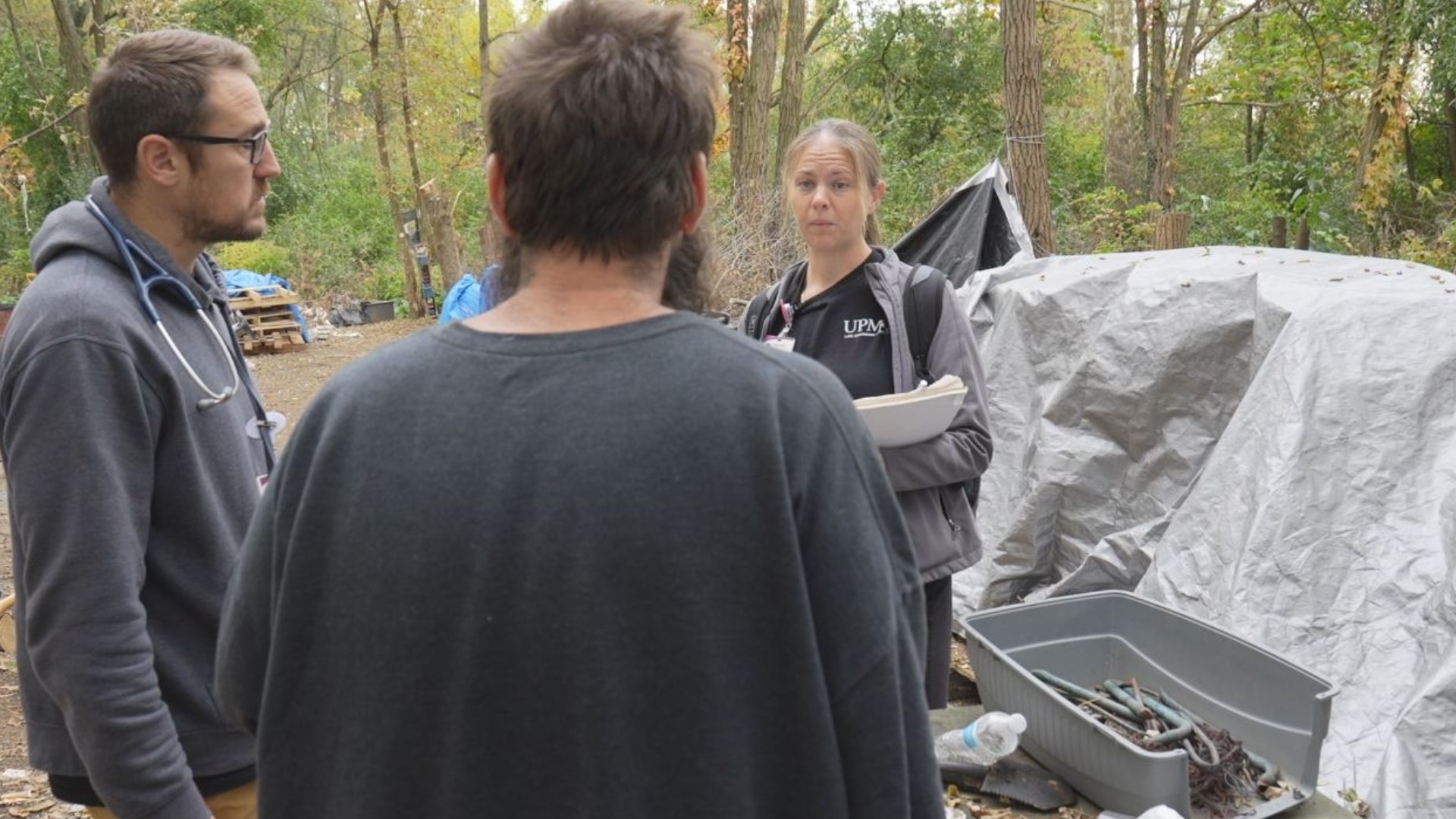DAUPHIN COUNTY, Pa. — For the unhoused population, receiving medical care can be incredibly difficult and time-consuming. That's a barrier Street Medicine aims to break.
The organization is run by a small team of healthcare workers and provides healthcare for the homeless population in Dauphin and Cumberland Counties. They are completely mobile, meaning they go directly to their patients.
"Street Medicine started about a year and a half ago, that came out of volunteer work that myself and the staff were doing and we saw the need for people living on the street or unsheltered living in their cars and wanted to take the healthcare to them," said Theresa Sellers, the director of community health initiatives at UPMC Pinnacle.
The organization provides blood work, prescribes and delivers medication and EKGs, provides wound treatment, conducts lab work and connects those in need to specific healthcare resources.
"We just serve the homeless population just like any other primary care provider would, it's just we adapt to meet their needs," explained Christopher Delong, a nurse practitioner for Street Medicine.
Many of their patients live in unsafe areas, ranging from harsh weather conditions, buildings not up to code or cramped living spaces. Diets are also a huge factor the doctors see, as nutritious foods typically aren't in their patient's budget.
"A lot of our patients, the situation that they're in are not something that has been their choice and it's not what they wanted. So that doesn't mean they don't deserve help," said Delong.
Another struggle for the volunteers is treating mental health.
"We do some short-term treatment, but we can't be [there for] the long term, so that's a struggle," Sellers explained.
Street Medicine partners with a local practitioner for mental health needs, but their resources are still limited.
"[This] can't be a job, it's a passion," Sellers continued. "When I was young, I was taught the importance of giving back your time, talent [and] treasures and I see that in my staff, they go above and beyond every day in these situations and helping people."
"This actually allows me to take care of individuals who need the most help," agreed Dr. Michale Van Scoy, a medical director with Street Medicine.
Word of mouth is important for the program.
"A lot of them don't know about the program," said community health worker Simone McRae.
"The access to health care around here is pretty limited, especially without street homeless friends, so bringing hat medicine to them is primarily what I do," agreed Stephanie Tighe, a community health worker with Street Medicine.
Every member of the team shares a passion for their work. At this time, the organization relies on funding from UPMC and grants. In 2024, Sellers hopes to bring Street Medicine and its resources to York County.

